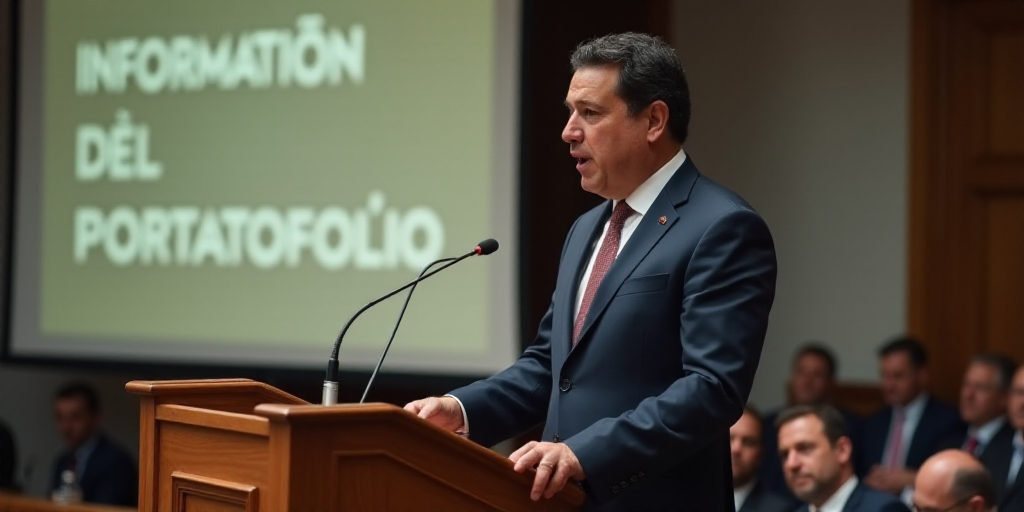Background on Marcelo Ebrard and His Relevance
Marcelo Ebrard, Mexico’s Secretary of Foreign Affairs and currently serving as the Secretary of Foreign Relations, holds a significant position in shaping Mexico’s international relations. As the head of Mexico’s foreign policy, Ebrard plays a crucial role in negotiating trade agreements and fostering diplomatic ties with other nations, including the United States. His recent statements highlight Mexico’s potential to capitalize on shifts in global trade dynamics, particularly as the U.S. seeks to reduce its reliance on Asian imports.
Ebrard’s Statement on De-risking and Import Replacement
During an event organized by Coparmex, Ebrard asserted that Mexico has opportunities to capture a portion of the import substitution that the United States plans to undertake, estimated at up to $250 billion, as part of its de-risking process. This de-risking refers to the U.S.’s efforts to diversify its supply chains and reduce dependence on Asian countries for critical goods such as medicines, semiconductors, medical devices, and refining of strategic minerals.
Contextualizing the Shift in Global Trade Dynamics
Ebrard explained that we are witnessing the beginning of a transition from a system dominated by the Washington Consensus, free trade, U.S. predominance, and reduced trade barriers to one characterized by “disadvantageous competitiveness.” In this new era, countries must evaluate the costs of entering markets and strive to offer the most favorable conditions compared to others, especially in relation to the United States due to its high degree of integration.
Impact on the T-MEC and Future Negotiations
Ebrard suggested that a preliminary understanding between the U.S. and China regarding their trade war could assist Mexico in reviewing the USMCA (United States-Mexico-Canada Agreement). With a clearer picture of the type of agreement, Mexico could strategically position itself to benefit from these changes.
He further mentioned that the 90-day pause given by both nations for negotiations on tariffs and other matters would postpone the T-MEC review until the second half of 2025.
Mexico’s Investment Portfolio and Opportunities
The Mexican government has a portfolio of 1,937 investment projects valued at approximately $298 billion in Foreign Direct Investment (FDI) for the current six-year term. Ebrard highlighted 441 projects with “high priority” that are being addressed to overcome adverse factors.
China-US Rivalry and Mexico’s Potential
Ebrard emphasized that the rivalry between the U.S. and China is at the heart of the ongoing global shift in trade and investment flows. To compete with China, the U.S. requires Mexico’s support in producing complementary goods and services. Ebrard believes that Mexican production has the potential to expand its export markets in the coming years.
Key Questions and Answers
- What does de-risking mean in this context? De-risking refers to the United States’ efforts to diversify its supply chains and reduce dependence on Asian countries for critical goods, thereby mitigating risks associated with geopolitical tensions and potential disruptions.
- How might Mexico benefit from this shift? Mexico has the opportunity to replace Asian imports worth up to $250 billion for the U.S., capitalizing on its strategic location, skilled workforce, and existing trade agreements. This could lead to increased foreign investment and economic growth.
- What is the significance of the 90-day pause in U.S.-China negotiations? The pause allows both countries to reassess their trade policies and potentially reach a mutually beneficial agreement. This development could influence Mexico’s review of the USMCA, positioning it to take advantage of any changes in trade dynamics.
- What role does the T-MEC play in this scenario? The USMCA is a crucial trade agreement between Mexico, the United States, and Canada. A review of this agreement, potentially influenced by U.S.-China negotiations, could offer Mexico opportunities to strengthen its position in North American trade.






